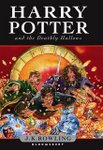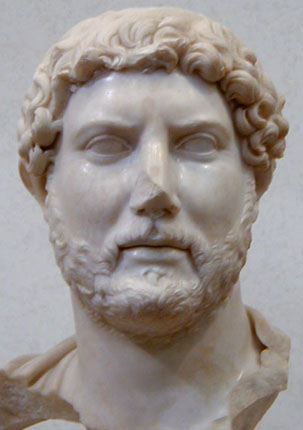 In an earlier post about last week's visit to London, I mentioned stopping at the Persephone Books shop on Lamb's Conduit Street. Persephone Books is an independent publisher that "reprints forgotten classics by twentieth-century (mostly women) writers." According to the publisher:
In an earlier post about last week's visit to London, I mentioned stopping at the Persephone Books shop on Lamb's Conduit Street. Persephone Books is an independent publisher that "reprints forgotten classics by twentieth-century (mostly women) writers." According to the publisher:The titles are chosen to appeal to busy women who rarely have time to spend in ever-larger bookshops and who would like to have access to a list of books designed to be neither too literary nor too commercial.
 The books Persephone Books chooses to publish are generally feature a softer, more domestic feminism than the books published by Virago Modern Classics, the other independent publisher of classic women's fiction in England. Among the treasures reprinted by Persephone Books are the often luminous short stories about ordinary life in wartime England that Mollie Panter-Downes originally published in the New Yorker (which also published her "Letter from London" periodically during World War II). Persephone even reprints cookbooks and gardening books and a 1949 self-help book for homemakers called How to Run Your Home Without Help. The books come in attractive gray covers, with endpapers based on fabric patterns from the period in which the book was first published. At right is the endpaper from the book I bought at the shop on Lamb's Conduit Street, R. C. Sherriff's The Fortnight in September (originally published in 1931)—a lovely novel about an ordinary English family's annual holiday at the seashore.
The books Persephone Books chooses to publish are generally feature a softer, more domestic feminism than the books published by Virago Modern Classics, the other independent publisher of classic women's fiction in England. Among the treasures reprinted by Persephone Books are the often luminous short stories about ordinary life in wartime England that Mollie Panter-Downes originally published in the New Yorker (which also published her "Letter from London" periodically during World War II). Persephone even reprints cookbooks and gardening books and a 1949 self-help book for homemakers called How to Run Your Home Without Help. The books come in attractive gray covers, with endpapers based on fabric patterns from the period in which the book was first published. At right is the endpaper from the book I bought at the shop on Lamb's Conduit Street, R. C. Sherriff's The Fortnight in September (originally published in 1931)—a lovely novel about an ordinary English family's annual holiday at the seashore. The Virago Modern Classics imprint was started in England in 1978, partly in response to the challenge set forth in Elaine Showalter's 1977 book A Literature of Their Own: British Women Novelists from Brontë to Lessing. Showalter observed that the women’s literary canon had traditionally been limited to a handful of representative authors who are widely considered “great”: Jane Austen, George Eliot, Charlotte and Emily Brontë, and Virginia Woolf. This narrow canon created the impression that the great women novelists were miraculous prodigies, instead of outstanding representatives of an evolving tradition of women’s writing carried forward in the works of hundreds of lesser-known novelists. Showalter urged scholars to turn their attention to these lesser-known women novelists in order to understand “the continuities in women’s writing,” and the ways in which women’s fiction had responded to changes in the status of women and the circumstances of women’s lives. One of the non-fiction books later published by Virago was Nicola Beauman's 1995 study A Very Great Profession: The Woman's Novel, 1914-1939. The book examined the more domestic, middle-class literature read by ordinary women between the wars—exactly the books that Beauman set about reprinting when she founded Persephone Books in the late 1990s.
 Dorothy Canfield Fisher (1878-1958).
Dorothy Canfield Fisher (1878-1958).My favorite Persephone Book is Dorothy Canfield Fisher's The Home-Maker, originally published in 1924. Dorothy Canfield grew up in the Midwest, but spent most of her creative life in Vermont, where she also served on the state Board of Education. She is perhaps best known for a children's book, Understood Betsy (1917), which reflects her advocacy of the Montessori method of elementary education. The Home-Maker is about a husband who wants to stay home and raise his children and a wife who wants to pursue her own career outside the home. An extraordinary book for 1924, and a very moving one as well.
If you order a book from Persephone Books, they'll put you on their mailing list and send you their interesting quarterly newsletter and a bookmark with the endpaper pattern from a recent release. The Autumn 2006 newsletter also includes a short story by E.M. Delafield, originally published in 1927.


No comments:
Post a Comment